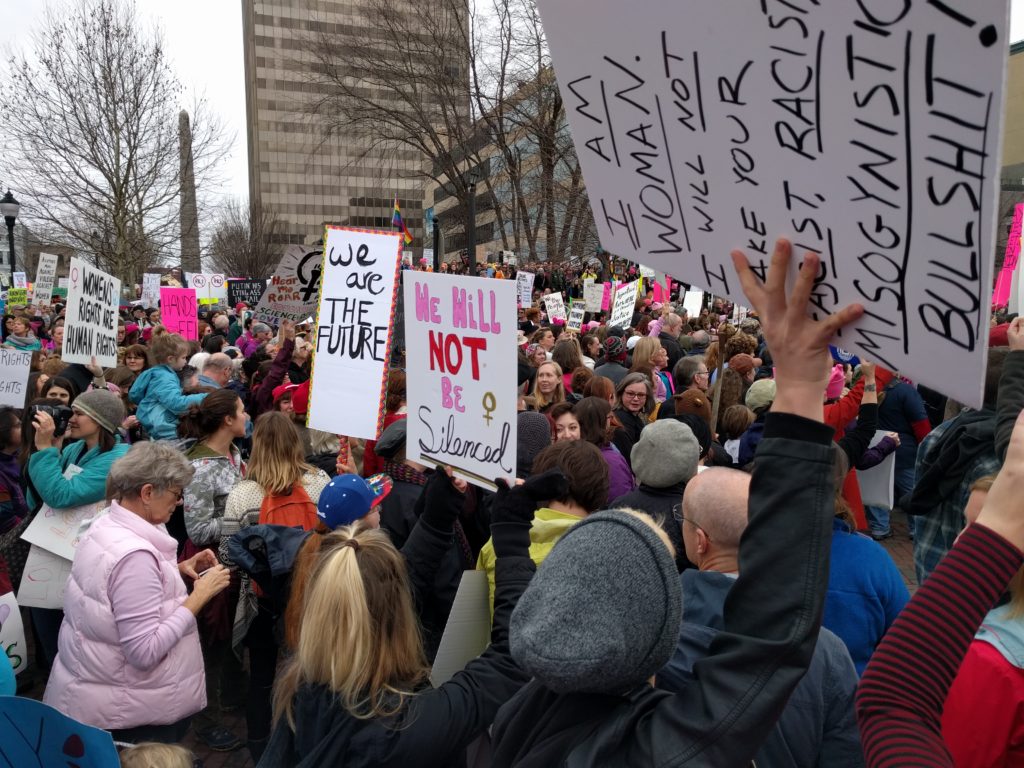Today, in the aftermath of an inauguration speech characterized by the promise of isolationism and fear, over half a million protestors came together to march on Washington, D.C. Thousands more walked into the streets in other cities throughout the United States and around the world. Here’s why, even in the shadow of the Trump administration, those protests still matter.
Donald Trump has made a career of being “tough”. He says what he thinks, he does what he wants, and he’s not about to get pushed around by a pathetic bunch of whiners. Today’s protest, no matter how massive, is unlikely to change any policy decisions he plans to implement in the next 99 days (although of course we all look forward to reading the 3:00 a.m. meltdown when he realizes more people turned out to protest than came to his inauguration). Similarly, the last eight years have demonstrated a new Republican strategy of politics as a zero-sum game; there is no longer room, it seems, for working together toward a greater good for all. It seems apparent, in fact, that any conversation between conservatives and liberals at this point in history is doomed due to the inability of either party to translate the language of the universe next door.
Given the disconnect, the partisanship, and the blatant callousness of our new President and his supporters, it is easy to dismiss today’s protests as a futile effort, perhaps good for morale but with no substantial effect on the future. But that completely misses a larger perspective, both in what the protests mean for today and in what they create for the future.
Don’t dismiss the importance of morale. Liberals woke up the day after the election with the dazed sense that the nightmare was now their waking life. The visceral fear that many of us felt, for ourselves, our loved ones, and for strangers we have never met, was overwhelming. And one foundation stone of that fear was the question of how it is even possible for so many people to vote for a man whose entire campaign was blatantly dedicated to bigotry and xenophobia. There is much needed comfort in seeing just how many people are willing to stand up against him and the principles he espouses. And yes, it’s bolstering to see a physical demonstration of the fact that they are the majority.
Protests draw more protestors. Recent studies have demonstrated an unexpected cause and effect related to protests: participating in a political action such as marches actually changes the beliefs and behavior of the participants. Someone who comes to a march with a friend, for example, but may not be particularly committed to the cause is much more likely to walk away from that action convinced of the veracity of the movement. And yes, that translates into further action and voting decisions.
Not all Republicans are so sure of their position (and a few are possibly even not evil). Though the newly installed President and his closest supporters may seem intractable, that is not necessarily the case for all Republican Congressmen…or their supporters. Several high ranking members of Congress have already begun questioning the demands of their leader, and there’s nothing like seeing half a million people blocking your way to work to make you question how you want to legislate. And it’s worth bearing in mind that not all Republican voters are comfortable with the new Commander-In-Chief, either. The massive turnout today is a powerful reminder that perhaps one’s party should not override one’s conscience.
This protest lays the groundwork for action to come. Coordinating protests on this scale requires systemic organization of everything from communications and outreach to permits and parking. Many different groups have been involved in bringing the Women’s March together, and as a result we now have a standing and viable system for the quick dissemination of information and calls to action. It is crucially important to understand that this protest, on the very first day of the new Presidency, is only the beginning. What matters more is what happens every day after today. Sustained and significant pressure will be required to convince larger swaths of legislators to hold fast against misguided or dangerous legislation. Protest actions must begin again and again, immediately after such legislation is introduced. We now have the essential systems in place to make sure that happens.
